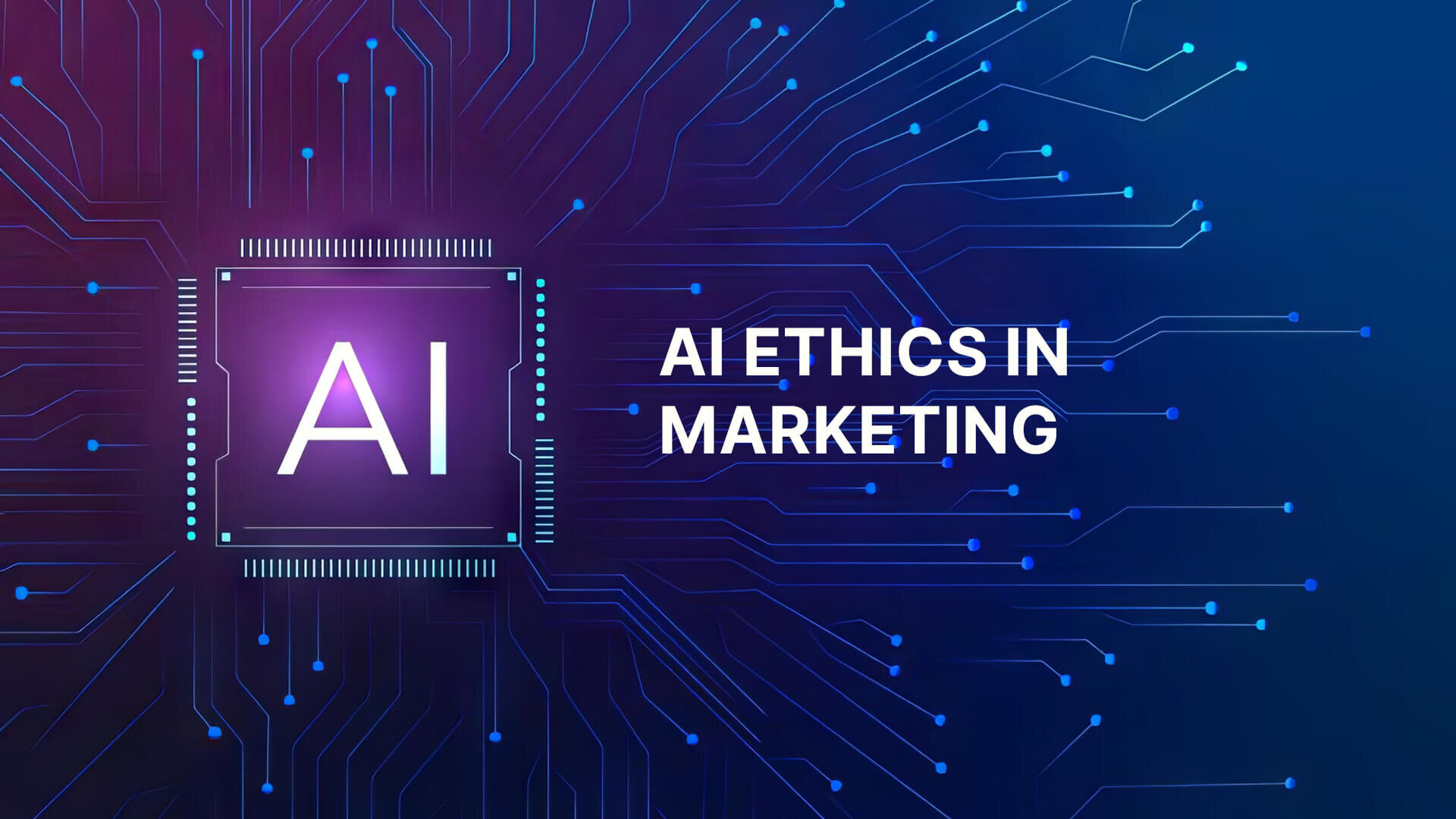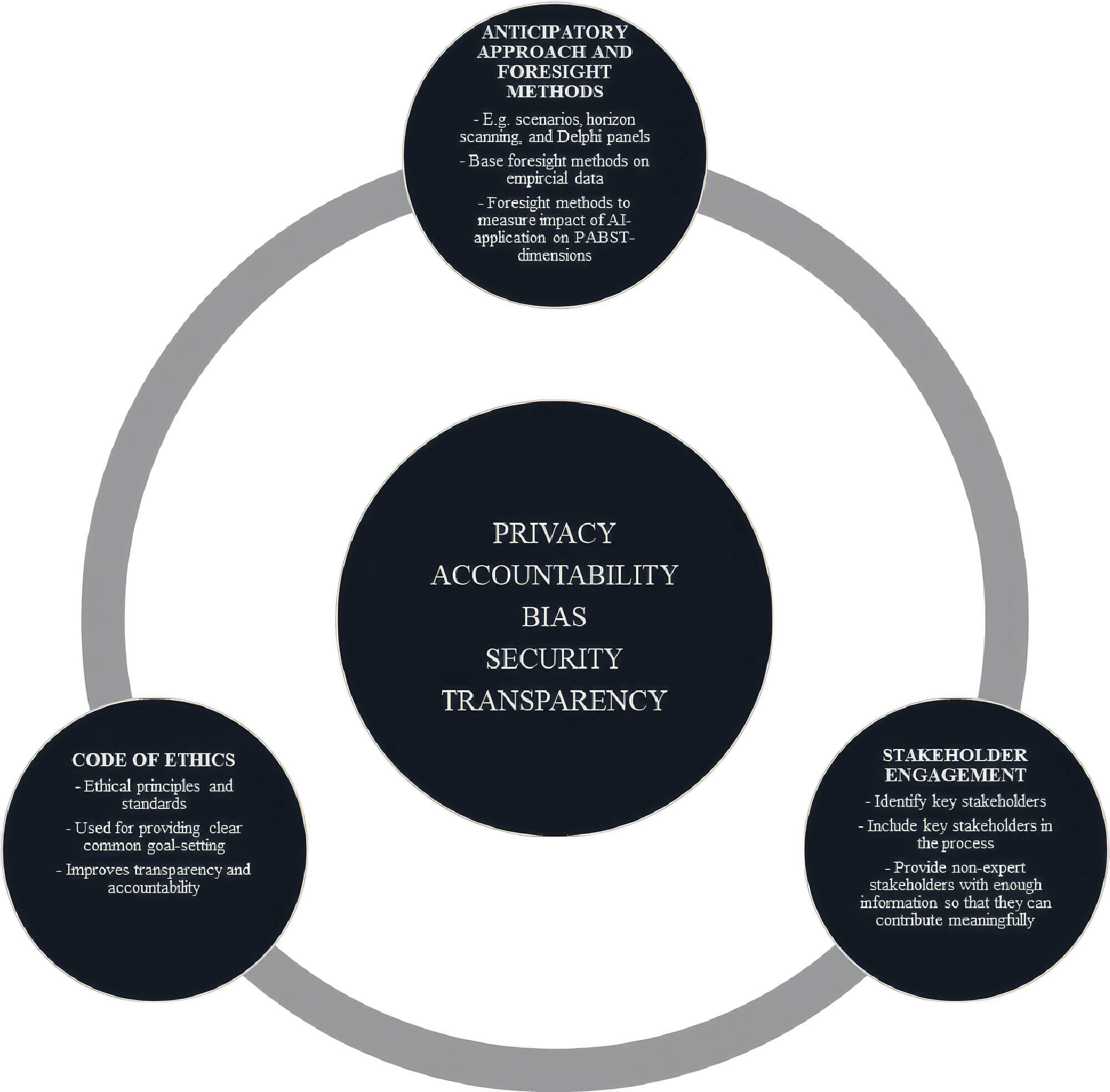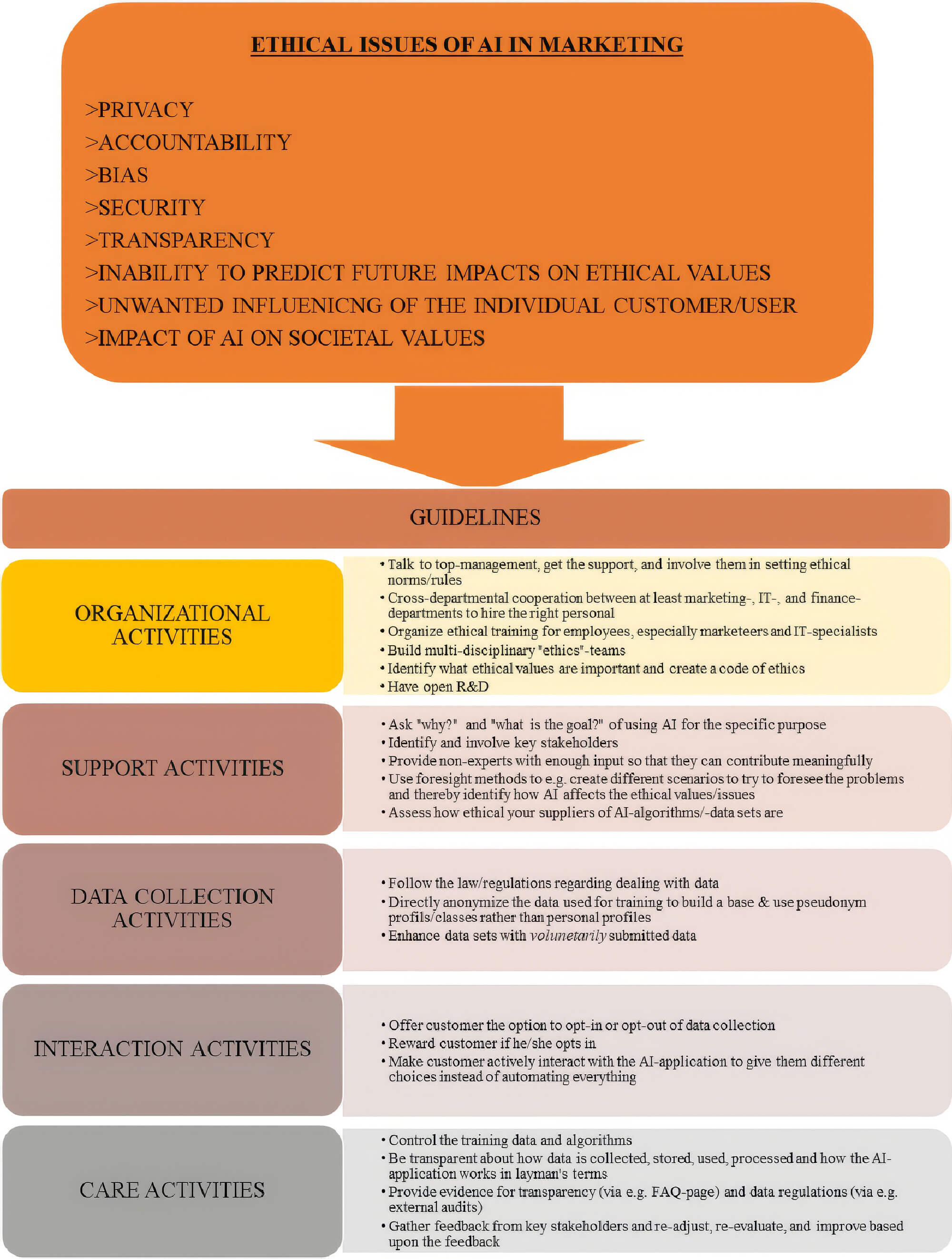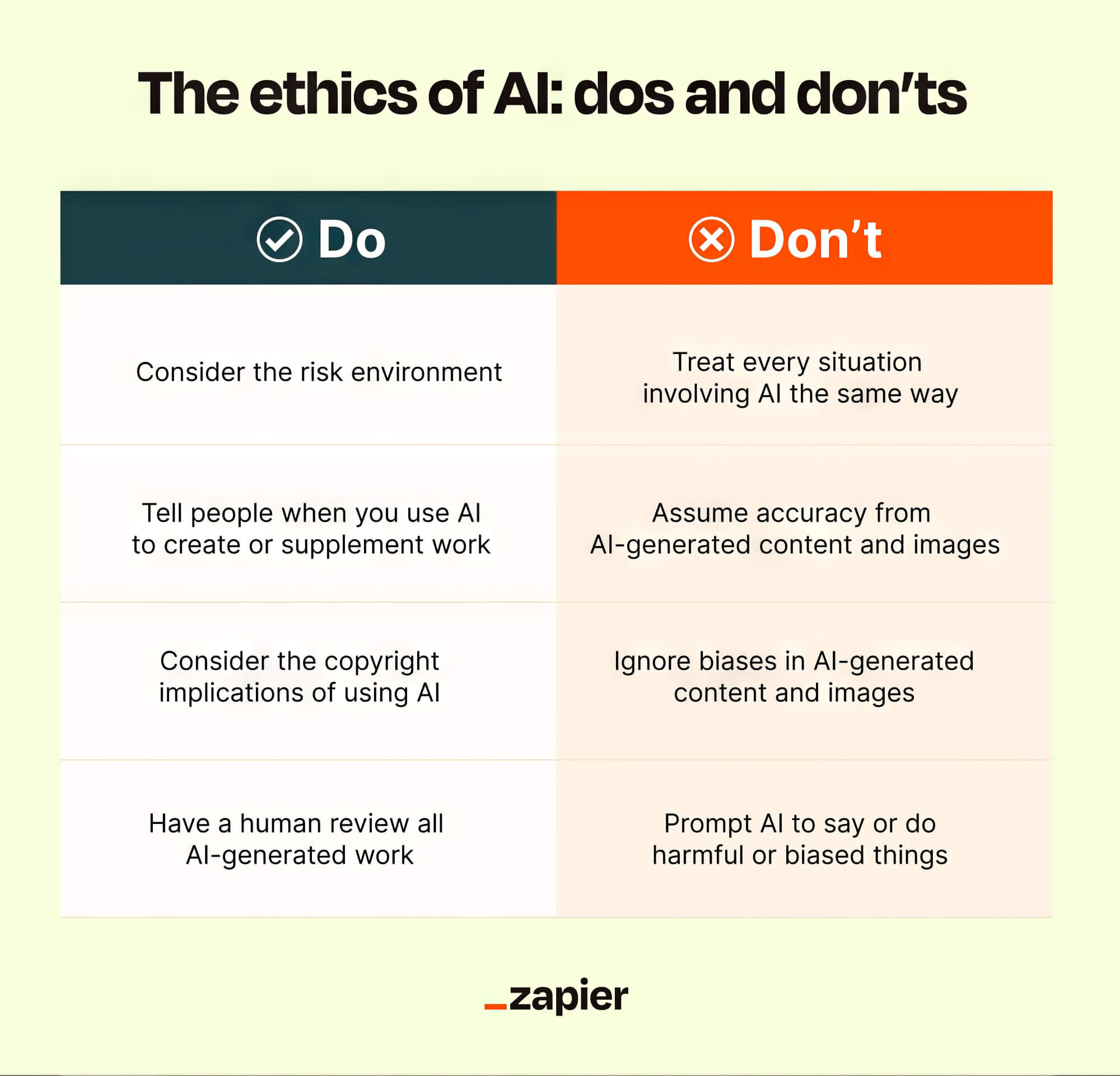Summary / TL;DR
AI ethics in marketing focuses on balancing personalisation and automation with responsible data practices. AI enables targeted campaigns and customer insights but raises major ethical concerns around privacy, data consent, bias, and misinformation. Marketers must ensure user data is collected transparently with explicit consent and avoid training AI systems on copyrighted or biased datasets. Challenges include factual inaccuracies from LLMs, such as ChatGPT, and possible legal issues from undeclared AI-generated content. Ethical marketing also requires transparency and fairness, especially as international regulations evolve. Using AI responsibly improves user trust and campaign effectiveness without compromising consumer rights.
Over the years, Artificial Intelligence (AI) has become a staple in marketing, with more companies jumping on board for personalised advertising.
Accompanying the prevalence of AI are ethical concerns, specifically those concerning consumer privacy and how their data is handled. The trade-off with AI is that while marketing campaigns become more streamlined, how the data is acquired raises questions about confidentiality.

After all, it is the responsibility of businesses not to trade their customers’ confidential information. So, let’s look at how different organisations perceive AI marketing and the ethical concerns surrounding it.
Want to receive updates? Sign up to our newsletter
Each time a new blog is posted, you’ll receive a notification, it’s really that simple.
An Exploration Of AI Marketing
Artificial intelligence AI-driven marketing campaigns are created as vast amounts of data are used to train these AI algorithms.
Training an AI system aims to understand and gauge how customers behave and serve high-level personalisation in ad experiences. The new technology sources its training data from a myriad of data mining points, such as online activity, purchase history, social media presence, etc.
These essential processes determine the types of content, products, and services any given consumer will likely engage with. As a result, the advertising process becomes much more streamlined, and those running the campaigns don’t have to put in as much work.

You can find more than one example of AI campaigns in nearly all aspects of marketing, from email campaigns to content creation. The increased opportunities for customer targeting make it so desirable to marketers, which means an innovative solution to the woes of traditional content marketing.
Of course, there are caveats associated with AI data collection in the form of data privacy, discrimination and bias. As such, developers must maintain high ethical standards regarding AI regulations that cannot be understated.
Ethical Issues In AI-Driven Marketing
While AI holds the potential to transform marketing, it’s crucial to be aware of the risks involved.
Marketers and stakeholders should really take the time to consider the ethical aspects of AI-driven campaigns. It’s important for both consumers and marketers to use AI responsibly, staying within boundaries to maintain trust.
While incorporating AI into your marketing strategies, consider the following ethical considerations.
1. Factual Inaccuracy
AI algorithms tend to learn inaccuracies or misrepresent information when it comes to providing factual data, which can be quite damaging for a marketer.
The poster child of AI tools in recent times has been ChatGPT, a language model that can be useful. That said, it’s essential to recognise that it can provide you with misleading or outright inaccurate information based on the prompt it’s fed.
ChatGPT itself says as much, providing all users with a disclaimer that it may not always be accurate. Feel free to test this out by reading this article on your own and note the opinions expressed by changing up your prompts using synonyms to find out how the language model responds.
This issue is further compounded when AI systems, primarily trained on a limited dataset, fail to prioritise current information. The ability of such models to adapt to recent world events or changes in the dataset is severely limited, reducing their effectiveness for marketing.
These inaccuracies can create extra work for campaign managers, who must review ads for errors. Without human oversight, just a few misleading lines from an AI-driven campaign can severely damage a brand’s reputation.
2. The Copyright Law
All too often, AI systems are trained on copyrighted materials that marketers may not purchase the right to. This extends beyond written content, as generative AI can be equally problematic when it comes to the law.
This can lead to the marketer infringing the rights of the copyright holder, which can be grounds for a lawsuit. Such lawsuits can be rather damaging for the marketer financially and reputationally.
Marketers need to use data in the public domain and keep copyrighted material strictly off-limits. With the increasing wariness in the general populace about AI and its ethical implications, it’s important for marketers not to overstep their boundaries with AI-driven campaigns.

3. Bias
Achieving balance and being transparent in ad campaigns is essential to their success, particularly if the marketer aims to reach a broad audience.
When AI systems are trained using a limited dataset, there is potential for them to conform to certain ideals that may not be a fair, neutral ground. Perpetuating inherent biases influences opinions and attracts the wrong kind of attention, which can quickly decimate the relationship a marketer may have built with their audiences.
Preventing bias and discrimination in AI systems through diverse data training is critical to eliminate the perpetuation of racial or gender biases. As the world moves into the future, inclusivity becomes more and more important, something that marketers must be mindful of.
4. Transparency And Disclosure
AI-related technologies are facing evolving regulations globally, making transparency and disclosure essential in the interim. People who interact with a particular brand may feel deceived if they were to find out that AI-generated all the content.
While the laws are being formed, it’s crucial to remember that specific existing data protection laws may apply. For instance, the Federal Trade Commission of America requires marketers to disclose any material connection between advertisers and their endorsers or face legal ramifications for violations. By leading with extension, this rule applies to AI-generated content in marketing as well.
As we move forward, it’s important to disclose whether content is being produced through AI to maintain the trust between a brand and its target audience.
5. User Privacy
All marketers must strive for user data protection and prevent it from being used unlawfully. Moreover, since creating AI content involves collecting personal data from multiple sources, comprehending consumer consent is of paramount importance.
Marketers must provide a clear guide to consumers about how their personal data would be collected for use in AI content. By obtaining users’ explicit consent, marketers build trust by indicating that they value their privacy and decision-making agency. This is a significantly better and more ethical marketing practice than simply scraping any personal data from a given website for AI-generated content.
Additionally, marketers should prioritise safeguarding against data breaches to keep user data secure. This involves implementing technical controls to limit unauthorised access.
Ensuring Responsible AI Use In Marketing
Knowing the ethical concerns associated with using AI for advertising, Now comes the time to ensure ethical practises.
There are three key steps that you may take to follow ethical guidelines in the use of AI in your advertising campaigns. Let’s explore each of these and find out how you can continue to use AI without severing the trust between you and the target audience.
1. Avoid Sensitive Data Unless Absolutely Necessary
Nothing makes a consumer wary of interacting with a brand more than realising that their personal information is being used without their express consent.
One way to avoid this unfavourable outcome is to avoid sensitive information altogether and focus on the data you can acquire ethically. That way, you can avoid privacy concerns while still being able to use AI for all of its benefits.
2. Inform Your Audience About Data Sharing
Your audience needs to know why their data is essential for the brand. But, being the sensitive topic that it is, to respect it, it’s crucial to approach this topic tactfully.
Share some data with your brand to inform your audience of all the benefits they will receive. Not only does this give them an insight into how your company works, but it also makes them more aware of your mission statement.
If you’re determined to navigate the challenges of changing the world, it’s fitting for the world to be informed about it.
3. Let Your Audience Choose The Data Being Shared
This is an extension of the point made above about transparency. You can guide the audience through ethical decision-making about the kinds of data you will benefit from, such as consumer engagement metrics, time-on-page, purchases, etc. Letting them choose the information they are comfortable sharing is a good idea.
In addition to ensuring they are comfortable sharing data, you can explain how AI impacts their lives positively. This outcome in decisions is enhanced by education that positively impact all parties involved.

Benefits Of AI In Marketing
AI is being used to identify marketing trends in a much more efficient way than what was possible before.
With the efficiency of AI’s ethical utilisation of user data and dynamic adaptability, AI can be a powerful asset in leveraging marketing trends to enhance your business. Adopting ethical AI practices in marketing leads to saving time and resources, permitting a focus on other critical aspects of the business.
Here are some tips and benefits you can reap after adopting AI in marketing to gain an edge over the competition.
1. Improved User Experience
AI marketing allows you to target audiences more effectively and serve them with the content they will likely engage with. This improves customer satisfaction, as each time they interact with an ad, they are increasingly likely to purchase the advertised product or service.
Aligning the right content with the intended audience has always posed a challenge that humans in digital marketing face, and AI aids in deciphering optimal solutions. The use of AI in marketing practices makes ad campaigns more personalised than ever, enabling consumers to be driven towards the products they need.
2. Better Audience Analysis
An AI system can go through a large amount of data in a small fraction of the time it would take a human to do it manually.
Such data analysis empowers algorithms within AI systems to accurately foresee customer needs derived from buying patterns and tailor ads accordingly. Based on the trends shown by the data, you can use AI to structure an ad campaign for a varied group of people.
Not only does this improve the ad campaign’s effectiveness, but it also helps improve consumer satisfaction. The number of potential leads generated through AI is significantly more than what was possible before.
3. Streamlined Ad Campaigns
You can employ AI to take the place of humans for specific repetitive tasks that would be too time-consuming otherwise. This improves productivity and allows your marketing strategies to get off the ground far more effectively.
Additionally, incorporating AI into your ad campaigns gives you access to consumer trends much more quickly. This allows you to switch marketing practices very quickly, making the tool quite effective for the purpose.
Ethics Matter, Even for AIs
AI and machine learning can be invaluable assets for any marketing endeavour when used ethically and transparently.
It’s important to remember the role AI plays as a tool, not a complete replacement for what a human can achieve. The effectiveness of AI is only as high as the quality of the datasets used to train it. High-quality datasets can streamline the advertising process like never before, but on the flip side, low-quality datasets can cause more trouble than they are worth due to a lack of accuracy.
Ultimately, as a marketer, you must adopt best practices that value customer satisfaction first and foremost through complete transparency and ethical use of data.




